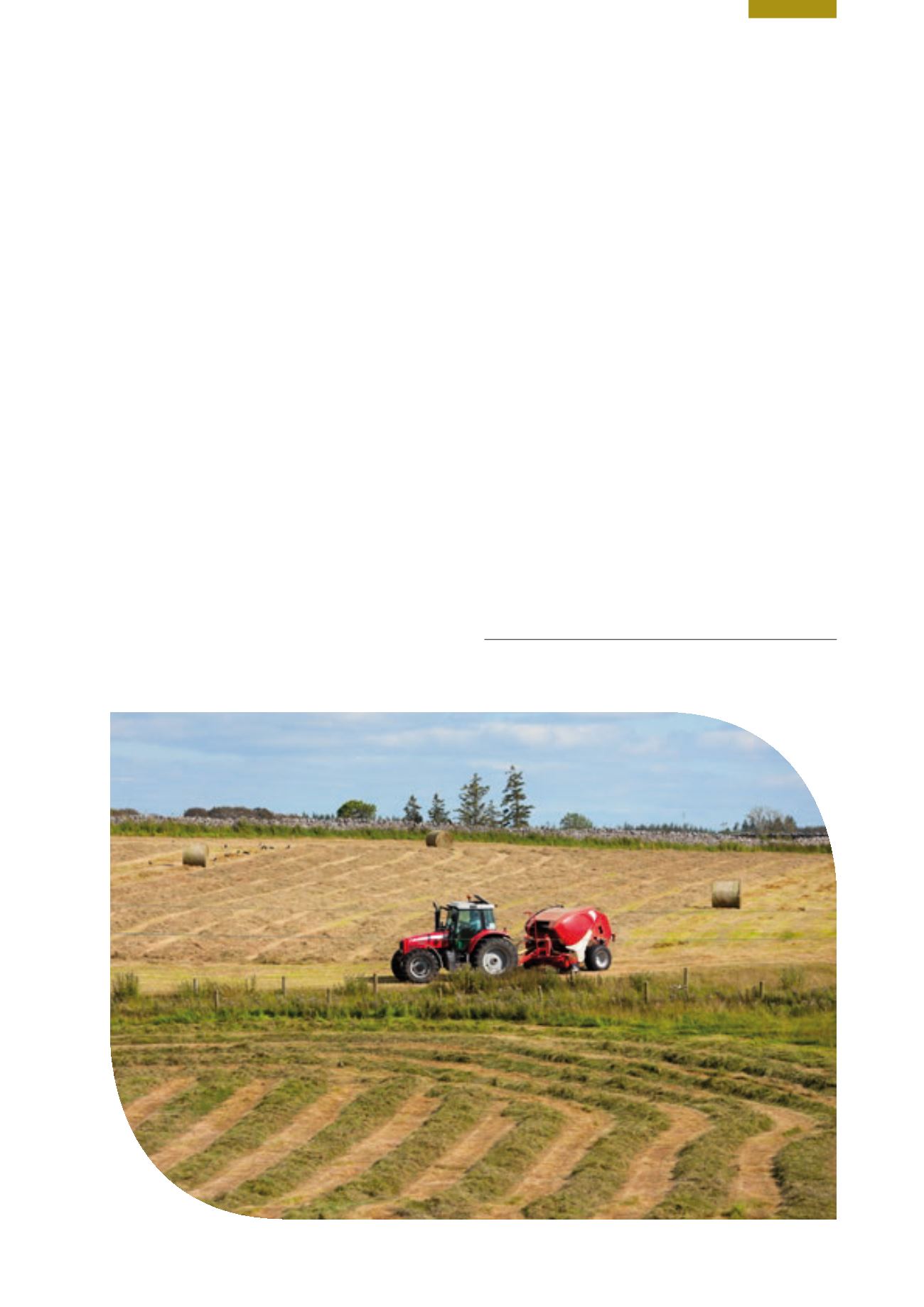

187
Chapter 12: Environment and Agriculture
Agriculture
Introduction
Value of agriculture in Ireland
Agriculture in Ireland is economically,
socially and culturally important.
Farming has been an important and integral facet
of Ireland’s economic, social and cultural history for
many thousands of years but recent decades have seen
substantial changes in how farming is carried out. These
changes together with comparatively abundant natural
resources have led to Ireland being a major meat, dairy
and food exporting country.
Agricultural practices have shaped Ireland’s countryside
and landscape. Along with the production of food,
farmers and farming can provide valuable ecosystem
services to society such as safe, clean water, regulation of
nutrient cycles, control of disease, crop pollination, and
enhancement of biodiversity as well as cultural, spiritual
and recreational benefits.
In recent years, the potential for agriculture and its
associated agri-food industry to support growth in the
Irish economy has been highlighted in two strategies:
Food Harvest 2020
1
and Food Wise 2025.
2
These have
been developed to increase the export and employment
contribution of the sector in a manner that is compatible
with sustainable growth. The Irish agri-food (agriculture,
forestry and fishing) sector accounted for 7.6% of national
gross value added in 2014. Primary production accounted
for €4,189 million with €8,562 million coming from the
manufacture of food and beverage products (DAFM, 2016a).
The Context of Irish Farming
Irish farming practice is shaped by its biophysical and
climate context.
The variability in weather and soils create the biophysical
environment in which farmers and land owners operate
but cannot control.
1
www.agriculture.gov.ie/foodwise2025/foodharvest2020/2
www.agriculture.gov.ie/foodwise2025/

















